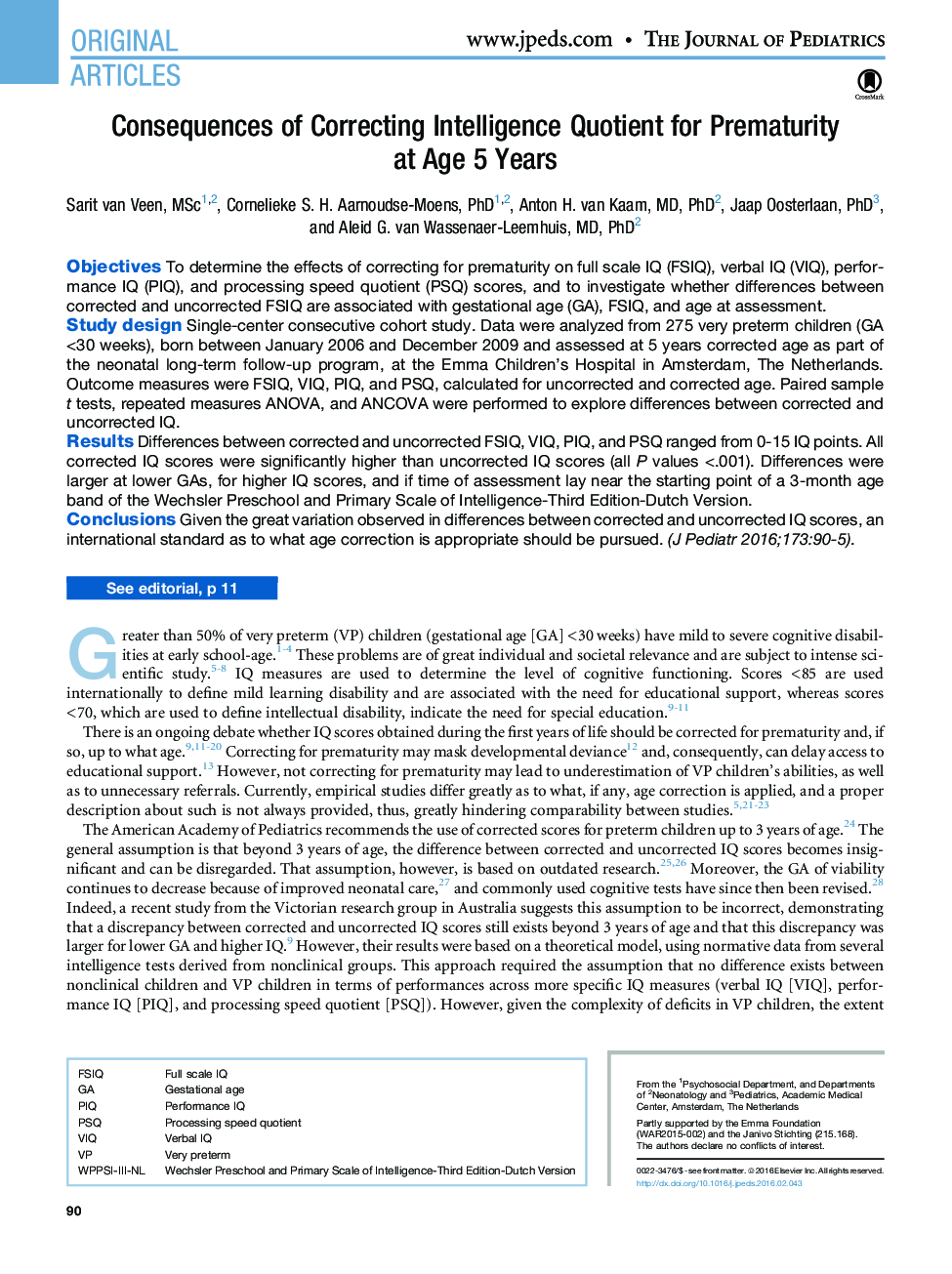| کد مقاله | کد نشریه | سال انتشار | مقاله انگلیسی | نسخه تمام متن |
|---|---|---|---|---|
| 6219496 | 1607428 | 2016 | 6 صفحه PDF | دانلود رایگان |
ObjectivesTo determine the effects of correcting for prematurity on full scale IQ (FSIQ), verbal IQ (VIQ), performance IQ (PIQ), and processing speed quotient (PSQ) scores, and to investigate whether differences between corrected and uncorrected FSIQ are associated with gestational age (GA), FSIQ, and age at assessment.Study designSingle-center consecutive cohort study. Data were analyzed from 275 very preterm children (GA <30Â weeks), born between January 2006 and December 2009 and assessed at 5Â years corrected age as part of the neonatal long-term follow-up program, at the Emma Children's Hospital in Amsterdam, The Netherlands. Outcome measures were FSIQ, VIQ, PIQ, and PSQ, calculated for uncorrected and corrected age. Paired sample t tests, repeated measures ANOVA, and ANCOVA were performed to explore differences between corrected and uncorrected IQ.ResultsDifferences between corrected and uncorrected FSIQ, VIQ, PIQ, and PSQ ranged from 0-15 IQ points. All corrected IQ scores were significantly higher than uncorrected IQ scores (all P values <.001). Differences were larger at lower GAs, for higher IQ scores, and if time of assessment lay near the starting point of a 3-month age band of the Wechsler Preschool and Primary Scale of Intelligence-Third Edition-Dutch Version.ConclusionsGiven the great variation observed in differences between corrected and uncorrected IQ scores, an international standard as to what age correction is appropriate should be pursued.
Journal: The Journal of Pediatrics - Volume 173, June 2016, Pages 90-95
